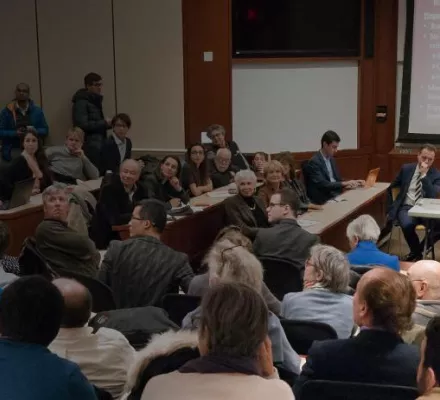
About
What is Applied History?
Applied History is the explicit attempt to illuminate current challenges and choices by analyzing historical precedents and analogs.
- Mainstream historians begin with an event or era and attempt to provide an account of what happened and why. Applied historians begin with a current choice or predicament and analyze the historical record to provide perspective, stimulate imagination, find clues about what is likely to happen, suggest possible interventions, and assess probable consequences.
- In this sense, Applied History is derivative: dependent upon mainstream history as engineering is upon physics or medical practice on biochemistry.
Frequently Asked Questions
Applied History Manifesto
Applied history is the explicit attempt to illuminate current challenges and choices by analyzing historical precedents and analogues. Mainstream historians begin with a past event or era and attempt to provide an account of what happened and why. Applied historians begin with a current choice or predicament and attempt to analyze the historical record to provide perspective, stimulate imagination, find clues about what is likely to happen, suggest possible policy interventions, and assess probable consequences. It might be said that applied history is to mainstream history as medical practice is to biochemistry, or engineering to physics. But that analogy is not quite right, as in the realm of science there is mutual respect between practitioners and theorists. In the realm of policy, by contrast, one finds a culture of mutual contempt between practitioners and historians. Applied history is an attempt to address that.
The Applied History Project at Harvard’s Kennedy School seeks to revitalize the study and practice of history in the tradition of two twentieth century giants: the modern historian Ernest May and the leading analyst of the American presidency, Richard Neustadt. Their book Thinking in Time, published in 1986, provides the foundation on which we intend to build. An urgently needed companion volume might be titled Acting in Time. Over the past decade, particularly as one of us was engaged in research for a biography of Henry Kissinger, we shared a humbling epiphany. It has been said that most Americans live in the “United States of Amnesia.” What we had not fully appreciated is how often this includes American policy makers as well. Reflecting on a wide range of administrations, we have come to realize the crucial importance in American foreign policy making of the history deficit: the fact that key decision-makers know alarmingly little not just of other countries’ pasts, but also of their own.
Assignments
Imagine that the president had a Council of Historical Advisers as the Manifesto describes. What assignments could the Council take on? How could its responses help inform important choices facing the president? Below is a list of possible assignments with featured pieces that could serve as answers.
